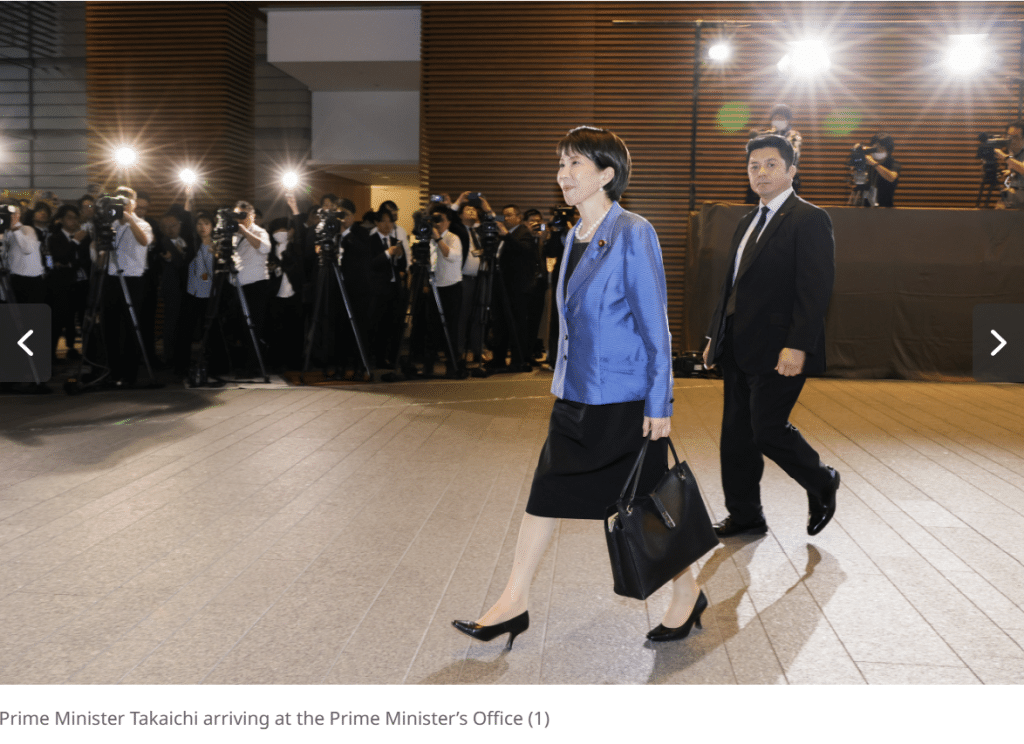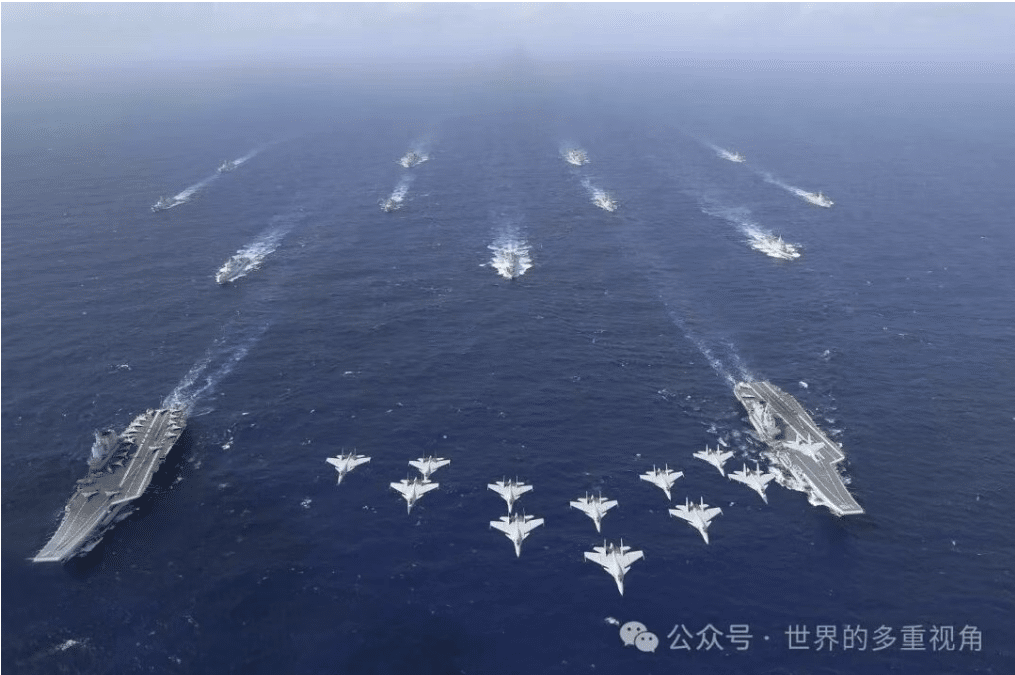David C. Kang: U.S. Policy Toward China Is Driven by Fear, Not Reality
- Interviews
 Yawei Liu
Yawei Liu  Juan Zhang
Juan Zhang- 11/07/2023
- 0
Editor’s note: Shortly after President Biden signed an executive order in early August aimed at regulating U.S. investments in semiconductors and microelectronics, quantum computing, and specific artificial intelligence capabilities, we reached out to David C. Kang of the University of Southern California to seek his opinion on the impact of U.S. tightened restrictions on China’s high-tech areas. Interestingly, the latest breakthrough of Huawei’s Mate 60 Pro seems to validate his analysis to a certain point. In addition, we sought Kang’s insight on the Xi-Biden summit right before the publication.
David C. Kang is Maria Crutcher Professor of International Relations at the University of Southern California. An expert in international relations in Asia, Kang has conducted extensive research on the region’s economic development, security relations, and the historical basis of contemporary relations. A former Fullbright Scholar, Kang received an A.B. with honors from Stanford University and his Ph.D. from Berkeley.
Do you have a couple of words to share about the Xi-Biden Summit? Will there be some breakthrough or will it be primarily a symbolic meeting?
I think that both sides would like to back down from their increasingly tense rhetoric and find a way to at least lower the temperature a little. On the US side, the administration has realized that mindless Cold War rhetoric is doing far more harm than good, and it cannot isolate or ignore China and they must find a way to work together, at least on some issues. For the Chinese side, there are some indications that they are looking to find a more cooperative path, as well.
Nothing of much substance will occur, but if the two leaders can meet and shake hands, that’s a good step.
In recent years, the U.S. government has increasingly ramped up its restrictions to high-tech-related technologies to China, especially in the chip industry. President Biden recently signed an executive order to restrict American investment in China’s high-tech industries. Could China end up in a similar position from the ’50s and ’70s?
The short answer is no, that won’t happen. The world is way too interconnected. I have watched many discussions in D.C. about small yards and high fences with a bit of surprise because it’s as if nobody lived through the Japan challenge of the 1980s and 1990s. We need to remember how that went. The contours look the same: a rising Asian country that’s very technologically sophisticated. At the time, we thought Japan had these insurmountable leads in semiconductors and their commercial use and all these kinds of things.
If you look back at what MITI, the Japanese Ministry of International Trade and Industry, did through the national industrial policy in the 1980s, the Americans thought they were far behind the Japanese. The solution wasn’t to build high fences and keep the Japanese out. What ended up happening is that technological innovation is so unpredictable and goes in such different ways that the market won out. Nobody thinks Japan is a leader in semiconductors anymore, or high tech, or any of the incredible innovations that have occurred through the internet.
So, the idea that American national industrial policy, or Chinese industrial policy for that matter, can decide who will be the winners will not happen. Support for this or that industry might be big, but the outcome could very well be marginal. Predicting how AI, the internet, and semiconductors will evolve is too hard. The U.S. might focus on here, and innovation may occur there. We have yet to learn.
In addition, China doesn’t want to be isolated anymore and its isolation in the 1950s was mostly self-imposed. That doesn’t mean that China’s going to lead the technological innovation. We’ll have to see what comes. But the discussion about how the United States can somehow decouple and divorce itself from China is mistaken. It speaks much more to actual political desires within D.C. to look tough than any actual economic plan for how it wants to go forward with its foreign economic relationships.
What is your observation of China’s response to the U.S. efforts to decouple/de-risk from China?
China has taken two stances. One is, rhetorically, China is still saying things like they’re not trying to take over the world and that they’re willing to work with the U.S. whenever they can, and second, has responded with some of their restrictions. Both countries are groping towards what they want to do and how they want to manage this relationship.
Some scholars believe China is more likely to use force against Taiwan after Russia invaded Ukraine. Other scholars predict that Russia’s setback in the war will make China less likely to use force against Taiwan. Many ordinary Chinese are convinced that the U.S. will try to push Taiwan into a war with China. What is your analysis of how the dynamics of the Russia-Ukraine war will affect the Taiwan issue?
Almost everybody misses the point. The point is not that China will invade Taiwan whenever it gets a chance, but this is how we discuss it. Xi Jinping does not wake up daily, saying, “Is today the day we invade Taiwan?” It shows a fundamental misunderstanding of the situation in the Taiwan Strait. China has never said, “We’re going to invade randomly.” They have said they reserve the right to use force if Taiwan declares independence from China unilaterally. China will only use force if Taiwan declares formal independence, and Tsai Ing-wen is getting as close to that line as possible.
But the point is, China, the U.S., and Taiwan, more than 40 years ago, came to a loose set of arrangements. This status quo has worked for all three parties. Under this framework, Taiwan could pretend to act like an independent nation. It could have its flag, its government, and its currency. As long as they didn’t call themselves an independent country, that was fine with China, and the U.S. was fine. Nobody used force. For more than four decades, that status quo has worked spectacularly well. China has gotten rich, Taiwan has gotten rich, and Taiwan has become a democracy during that time.
However, that status quo is increasingly being pressed, and China is not pushing it. Taiwan and the United States are pressing it. The U.S., in its rush to show toughness and stand up to China, is now using Taiwan as an example of supporting democracy or some other things. It’s mainly the American side changing the status quo, not the Chinese, which I find particularly disturbing. So, the Russian invasion of Ukraine has almost nothing to do with what would trigger violence over Taiwan. It’s much more about the situation in the Taiwan Strait that will trigger a use of force.
The example I give here is similar to the horrific costs the United States sustained during its civil war, 600,000 deaths, and unbelievable destruction in the U.S. to maintain the Union. Do you think the Chinese would do things any differently? Unlikely. This tells us much more about the discourse in Washington, D.C. than it does anything about China’s actions. Both the left and the right in Washington have now rushed to the “Contain China, they’re dangerous” mindset. You can’t say anything other than that without people in D.C. rolling their eyes at you as if you have no idea what you’re talking about. The lack of attention to what China, Taiwan, or the region is doing is one of the biggest problems with American foreign policies.
President Biden has repeatedly made statements regarding U.S. intervention if China forcibly reunites Taiwan. The recent Taiwan report by the Council on Foreign Relations suggests Biden’s remarks should serve as a new baseline for America’s Taiwan policy. Do you sense a shift in the longstanding official Taiwan policy of the U.S. government?
There is a lot of enthusiasm for hugging Taiwan to death, loving Taiwan to death, as someone puts it. Americans are going out of their way to show how much we love democracy, and we’re in danger of loving Taiwan to death, making it worse for everyone involved.
I don’t know whether Biden misspoke or not. If I was going to draw one lesson from the Russia-Ukraine war, this is the lesson. It’s not a lesson that China’s learning, nor a lesson that Taiwan has learned. But it’s a lesson that we should take into account about the United States, which is the United States is very, very cautious about getting involved in a war that is not central to our national security, that exists near a nuclear-armed superpower. We are performatively loving Ukraine as much as possible, but we’re not getting involved in that war. Some people would love to confront China, but most people who think about this are much more cautious about pushing forward.
From your perspective, what is the biggest lesson that Taiwan should learn from the Russia-Ukraine war?
If I’m Taiwanese and watch what the U.S. is doing for Ukraine, I would not believe the U.S. is coming to my aid either. There’ll be a lot of support. They’ll send money. They’ll send guns. But is the U.S. going to get involved in a potential nuclear holocaust thousands of miles from its borders? To me, if I’m from Taiwan, that’s the lesson. The U.S. has not gotten involved in Ukraine; there is no indication that we’re doing it now.
In your opinion, what policies can best manage the Taiwan issue and maintain peace in the area?
I wish that the U.S. would stop trying to show off how it loves democracy and go back to the status quo. The status quo has worked. The United States is in danger of becoming the revisionist power over the Taiwan Strait by pushing Taiwan to declare independence. The status quo has worked for more than 40 years. It’s not perfect, but it has stopped the war, everybody has gotten rich, and Taiwan is a vibrant democracy.
Many people in East Asia are very concerned about a potential war involving China and Taiwan. Since the status quo has worked so well, as you put it, have you thought about why some U.S. policymakers are attempting to change the status quo?
It’s less about Taiwan, and even less about China, and more about where America is. Much of American foreign policy, particularly its policy towards East Asia, often reflects our fears and insecurities more than anything that is happening in the region. I find it baffling that the drumbeat of the Cold War against China continues to grow in the U.S. because it’s not like China has any bigger claims today than it had 40 years ago.
At the same time, China has become richer and more open than it was 40 years ago. This is progress in the right direction. Yes, there are issues to be handled. It’s not perfect. That’s life. And yet, there’s so much discussion among politicians in the U.S. because it’s a very convenient way to look tough and act tough. It has nothing to do with the reality of what’s happening in Taiwan or China. It’s very difficult for Americans to conceive of us not being the leader. It’s taken for granted that primacy or dominance is an end in itself.
Harvard’s Graham Allison has a famous assertion that the U.S. and China are destined for a war. What is your take on this?
Graham Allison is a popularizer. I have a book coming out where we directly challenge his theory. Nobody’s destined for war. That’s not happened. It’s easy to think of China and the U.S. as getting into a war because if we view countries as just billiard balls or like the board game of Risk, all that matters is who’s more powerful and the powerful invade the weaker. It seems obvious and intuitive.
But the fact is, China isn’t an existential threat to the United States. It is not a threat to the survival of the United States. You cannot argue that China somehow aims to invade and conquer the United States. No, nobody thinks that. That’s ridiculous.
The Biden administration has heavily invested in its relationship with ASEAN countries. How do you analyze the role of the U.S. in Southeast Asia?
A livable and enduring status quo in the South China Seas over maritime claims, Taiwan-China relations, and any issues between the United States and China will not be military. It will not be deterrence. The status quo that works will be diplomatic, like the one we used to have. The U.S. should engage in diplomacy and economic multilateral engagement with the region. We’re not, though.
The Biden administration recently restored some communication channels with China. From a strategic point of view, how would you see the state of this relationship, and where will it head?
There’s no question U.S.-China relations have deteriorated to a point as bad as they’ve been in my lifetime, and in ways that genuinely, even five years ago, I thought they couldn’t get as bad as they are now. It seems self-defeating on both sides. But the Biden administration has begun to realize that too much muscle flexing and chest-beating is dangerous for the United States, so they have started to walk back some of that rhetoric.
The Chinese have been somewhat open and then somewhat not open, which I’m not surprised by. The Chinese aren’t going to necessarily just let the U.S. decide where this relationship will go and, no matter what, respond to it. When Xi Jinping talks about multipolarity, he’s talking about many countries. That is explicitly not a Chinese drive for global hegemony. There’s plenty of room on the one hand for moving relations a bit to a better place.
Part of what has happened is that the mood in D.C. has gone so far towards containment that it is an echo chamber now, and people are just listening to each other. Biden is trying to walk it back, but I don’t see much changing.
We’re in a place now on American national industrial policy or economic foreign policy that I never thought we’d be at. I never thought we’d be at a place where we’re trying to build barriers and bring investment home. The attempt to try and do that in the 1980s failed spectacularly. No matter what we tried with Japan, we didn’t bring the semiconductor industry back here. We didn’t bring manufacturing and consumer electronics back here. It didn’t happen. I’m just baffled that we’re doing it again, but we are. So, this is deeper than just the Biden administration. It’s a mindset on both the left and the right in the United States.
If Trump or someone like him wins the presidential election, will we see more challenging U.S.-China relations?
It depends. But even now, I don’t see a fear of China among the average American the way I saw a fear of Japan 30 years ago. Thirty years ago, my parents’ friends were talking about Japan and what was happening to the country, and fear that Japan would take over everything. It was palpable. I don’t see that at all. I don’t see much attention to China at all, other than among the D.C. elite.
And so, that will play into whoever takes over because there’s not a national call for anti-China sentiment like I saw anti-Japan stuff 30 years ago. It’s an elite call. It’s a foreign policy call. It will depend on who the president is as to how much it goes in one direction or how much they walk it back.
Authors
-

Dr. Yawei Liu serves as a senior advisor to the Carter Center’s China Focus program. He is the founding editor-in-chief of U.S.–China Perception Monitor and its Chinese-language website, 中美印象.
-

Juan Zhang is a senior writer for the U.S.-China Perception Monitor and managing editor for 中美印象 (The Monitor’s Chinese language publication).







